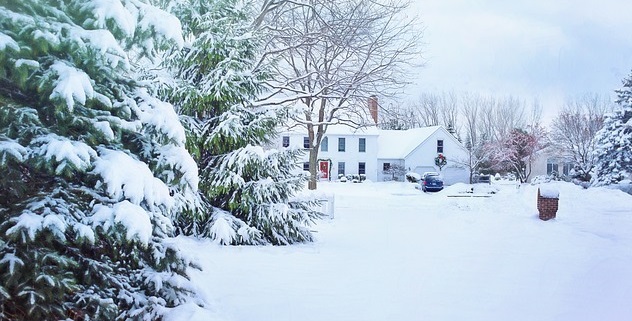
It is that magical time of year in New England again! The time of year when it’s cold, dark and you’re shoveling out your driveway for the third time this week because of snowstorm after snowstorm. Didn’t the weatherman say we were only supposed to get a dusting?
This winter weather can not only impact your quality of life, but your water treatment and well…as well! A few things to keep in mind during these next few months of winter.
Tips & Info
Well Head
Keep your well head exposed and free of snow. If you have any water pressure issues and the well needs to be checked this will allow the technicians easy and quick access to make the proper diagnosis. This also keeps snow from getting pushed up inside the well cap and potentially introducing bacteria into your well.
Cold weather can make the plastic conduit around your well head (which can house electrical wires) extremely brittle. Use caution when shoveling or snow blowing near your well head.
Water Treatment & Discharge
If you have water treatment equipment that discharges outside, there is always the risk of the discharge line freezing in the cold temperatures. If this occurs, when the unit backwashes the discharge water will not have anywhere to go and may wind up back in your brine tank (if you have a Water Softener). You could experience poor water quality in your home until the drain line unfreezes.
Water treatment equipment can also freeze! If you lose heat for an extended period of time, the water inside your plumbing, pressure tank, and water treatment tanks can freeze. Water expands when frozen and can rupture the plumbing/tanks.. If you are going away and plan on turning the heat off to your house, be aware that water treatment equipment cannot be “winterized” by introducing an anti-freeze like chemical into them. They should be drained of all water and put into bypass. If softener resin is allowed to freeze, there is the risk of the plastic beads breaking apart and needing to be replaced.
Frozen Pipes
It is also possible for the line from your well into the house to freeze in extreme temperatures, especially if you have a jet pump. The water inside the lines can freeze solid, causing you to have no water in the house. Often our technicians have to run torches across different sections of exposed pipe to try and loosen the ice and allow the water to flow.
Exchange Tanks
When shoveling out your driveway and path to your oil fill, make sure if you are one of our exchange tank customers you also shovel a path wide enough to accommodate a hand truck (about 24”). Our technicians also appreciate a clear, safe path when they come to perform annual service on your water treatment equipment.
If you have any questions or concerns about how winter can impact you and your water, do not hesitate to contact us. We are happy to answer any questions you may have.
We wish you a safe and warm winter season in New England and are already counting the days until Spring!
